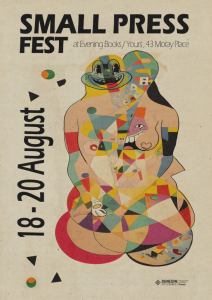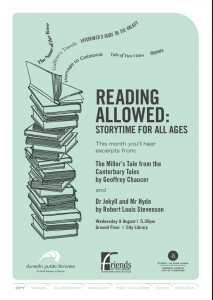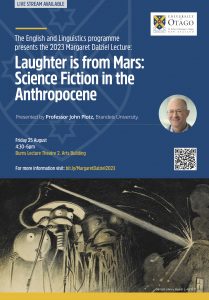 Anyone interested in books and resistance is invited to join a webinar hosted by the Bibliographical Society of America on September 12, 2023 at 6:30 PM (EST) [10:30 AM on Wednesday 13 September NZ time] for a public lecture by Tara Bynum on Black Reading in Early America. You can register for the talk here (https://secure.lglforms.com/form_engine/s/9Sew6IXDy63wN8kE_tTeOw).
Anyone interested in books and resistance is invited to join a webinar hosted by the Bibliographical Society of America on September 12, 2023 at 6:30 PM (EST) [10:30 AM on Wednesday 13 September NZ time] for a public lecture by Tara Bynum on Black Reading in Early America. You can register for the talk here (https://secure.lglforms.com/form_engine/s/9Sew6IXDy63wN8kE_tTeOw).
Here is Professor Bynum’s abstract for her lecture:
“In the early United States, a Black person committed an act of resistance simply by reading and writing. Yet we overlook that these activities also brought pleasure. Tara A. Bynum tells the compelling stories of four early American writers who expressed feeling good despite living while enslaved or only nominally free. The poet Phillis Wheatley delights in writing letters to a friend. Ministers John Marrant and James Albert Ukawsaw Gronniosaw memorialize their love for God. David Walker’s pamphlets ask Black Americans to claim their victory over slavery. Together, their writings reflect the joyous, if messy, humanity inside each of them. This proof of a thriving interior self in pursuit of good feeling forces us to reckon with the fact that Black lives do matter.
A daring assertion of Black people’s humanity, Reading Pleasures reveals how four Black writers experienced positive feelings and analyzes the ways these emotions served creative, political, and racialized ends.
Tara A. Bynum is an Assistant Professor of English & African American Studies at the University of Iowa. She is the author of Reading Pleasures: Everyday Black Living in Early America.


 Join the Theology Programme seminar on Friday, 25 August at 4.00pm in Burns 4 of the Arts Building as they welcome Dr. Donald Kerr speaking on “The Rev. William Arderne Shoults: His Life and Legacy.”
Join the Theology Programme seminar on Friday, 25 August at 4.00pm in Burns 4 of the Arts Building as they welcome Dr. Donald Kerr speaking on “The Rev. William Arderne Shoults: His Life and Legacy.” SMALL PRESS FEST
SMALL PRESS FEST The next session of Reading Allowed is NEXT Wednesday – August the 9th at the ground floor Cube area at 5.30pm
The next session of Reading Allowed is NEXT Wednesday – August the 9th at the ground floor Cube area at 5.30pm The Centre for the Book is pleased to share the news about this year’s Margaret Dalziel lecture, “Laughter is From Mars: Science Fiction in the Anthropocene,” which will be delivered by Professor John Plotz of Brandeis University on Friday August 25, 4:30-6:00, Lecture Theatre 2 in the Arts/Robert Burns Building on the University of Otago campus. Further details may be found here:
The Centre for the Book is pleased to share the news about this year’s Margaret Dalziel lecture, “Laughter is From Mars: Science Fiction in the Anthropocene,” which will be delivered by Professor John Plotz of Brandeis University on Friday August 25, 4:30-6:00, Lecture Theatre 2 in the Arts/Robert Burns Building on the University of Otago campus. Further details may be found here: